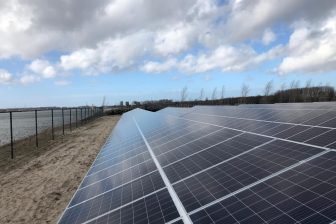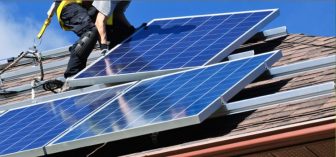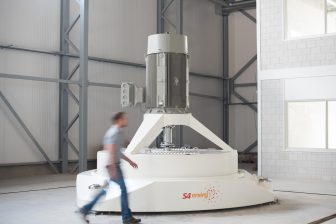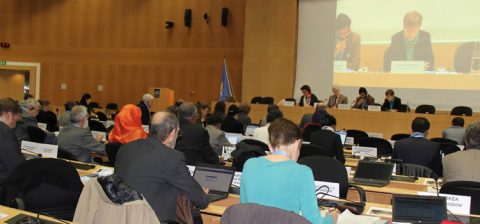
‘Klimaatdoel nu al onhaalbaar, snel stoppen met fossiele brandstoffen noodzakelijk’
9 augustus 2016 – Wetenschappers waarschuwen dat acht maanden na ‘Parijs’ de wereld moet concluderen dat het klimaatdoel van een maximale opwarming met 1,5 graad nu al onhaalbaar is geworden. Moet er daarom nu gesproken worden over een stop op fossiele brandstoffen?
.
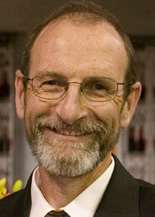
Deze maand komt in Genève het Intergovernmental Panel on Climate Change (IPCC) bijeen om uit te werken hoe een limiet van 1,5 graad opwarming bereikt kan worden.
Maar de vice-voorzitter van het IPCC, professor Chris Field, liet tegenover The Guardian/The Observer al blijken er een hard hoofd in te hebben. Hij noemde de opdracht ‘impossible or at the very least, a very, very difficult task’.
Er is al geopperd dat er in Genève gesproken zal moeten worden over een stop op fossiele brandstoffen.
De Independent, The Guardian/The Observer inventariseren de zorgen van de klimaatwetenschappers.
Uit het artikel van de Independent
‘(…) A global warming limit agreed by world leaders with great fanfare is feared to be coming close to being broken just eight months on. Climate change scientists have warned it may be nearly impossible to keep global warming below the 1.5C target set at the Paris negotiations in December after temperatures peaked at 1.38C above pre-industrial levels in February and March. (…)
Dr Ben Sanderson, of the National Centre for Atmospheric Research in Boulder, Colorado, suggested that it would take a global effort with such measures on an unprecedented scale to keep the target – a “tall order”. “If the world puts all its resources into finding ways to generate power without burning fossil fuels, and if there were international agreements that action must happen instantly, and if carbon emissions were brought down to zero before 2050, then a rise of no more than 1.5C might just be achieved,” Dr Sanderson said. Professor Jim Skea, a member of the UK government’s committee on climate change, said “negative emission technology” would have to play a part by actively removing carbon dioxide from the atmosphere.
So-called “carbon capture” techniques include extracting the gas from the air, liquefying it and storing it underground. (…)’
Uit het artikel van The Guardian/The Observer
‘(…) [Chris Field, co-chair IPCC:] “If we shut down fossil fuel plants tomorrow – before we have established renewable alternatives – we can limit emissions and global warming, but people would suffer. There would be insufficient power for the planet. There is an upper limit to the rate at which we can move to a carbon-free future.” (…) “It means that by 2025 we will have to have closed down all coal-fired power stations across the planet,” said John Schellnhuber, director of the Potsdam Institute for Climate Impact Research. “And by 2030 you will have to get rid of the combustion engine entirely. That decarbonisation will not guarantee a rise of no more than 1.5C but it will give us a chance. But even that is a tremendous task.”
Many scientists now believe the most realistic strategy is to overshoot the 1.5C target by as little as possible and then, once carbon emissions have been brought to zero, carbon dioxide could be extracted from the atmosphere to start to cool the planet back down to the 1.5C target. In other words, humanity will have to move from merely curtailing emissions to actively extracting carbon dioxide from the air, a process known as negative emissions. (…)’
Van 15 tot 18 augustus houdt het IPCC in Genève de ‘Scoping Meeting Special Report on 1,5°’.
Bronnen
Independent, 7 augustus 2016: Scientists warn mankind will miss crucial climate change target – eight months after agreeing it
The Guardian/The Observer, 6 augustus 2016: Scientists warn world will miss key climate target
Foto 1: IPCC-overleg in Genève; foto 2: Chris Field (IPCC). (Beide foto’s IPCC)

